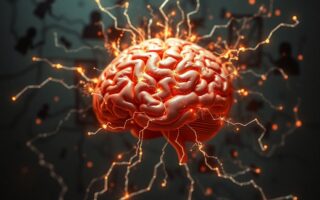Unraveling the Differences: Nervous Breakdown vs. Mental Breakdown
In colloquial language, the terms “nervous breakdown” and “mental breakdown” are often used interchangeably to describe a state of acute psychological distress or emotional crisis. However, within the realm of mental health, these terms may carry different connotations and refer to distinct experiences. In this article, we’ll explore the nuances between nervous breakdowns and mental breakdowns, shedding light on their definitions, potential causes, and implications for mental well-being.
Understanding Nervous Breakdowns
The term “nervous breakdown” is a colloquial expression that lacks a precise clinical definition. It is often used to describe a period of overwhelming psychological distress or emotional upheaval, during which an individual experiences a significant decline in functioning. Symptoms of a nervous breakdown may include intense anxiety, panic attacks, depression, emotional volatility, and impaired cognitive function. While the term may encompass a wide range of mental health crises, it is not recognized as a specific diagnosis within psychiatric classification systems such as the DSM-5 (Diagnostic and Statistical Manual of Mental Disorders).
Exploring Mental Breakdowns
Similarly, the term “mental breakdown” is also used to describe a state of acute psychological distress characterized by symptoms such as severe anxiety, depression, emotional instability, and impaired cognitive functioning. Like the concept of a nervous breakdown, mental breakdowns are not formally recognized as a specific psychiatric diagnosis. Instead, they represent a subjective experience of overwhelming emotional turmoil and psychological upheaval that may result in a temporary inability to cope with daily life stressors.
Differentiating Between the Two
While the terms “nervous breakdown” and “mental breakdown” are often used interchangeably, some distinctions can be drawn between them. A nervous breakdown may imply a sudden onset of overwhelming psychological distress, often triggered by external stressors such as work pressures, relationship conflicts, or traumatic events. In contrast, a mental breakdown may encompass a broader range of psychological experiences and may be characterized by a gradual decline in mental health functioning over time.
Additionally, the term “nervous breakdown” may carry historical connotations rooted in outdated beliefs about the relationship between mental health and the nervous system. In contrast, “mental breakdown” may be perceived as a more encompassing term that acknowledges the complex interplay of psychological, emotional, and social factors contributing to an individual’s distress.
Implications for Mental Health
Regardless of the terminology used, experiencing a nervous or mental breakdown can be a distressing and debilitating experience for individuals. It may signal a need for urgent intervention and support to address underlying mental health concerns and restore psychological well-being. Seeking professional help from mental health professionals, such as therapists, counselors, or psychiatrists, can provide individuals with the necessary resources and strategies to navigate their distress and work towards recovery.
| Term | Definition |
|---|---|
| Nervous Breakdown | A colloquial term used to describe a period of overwhelming psychological distress or emotional upheaval, often characterized by symptoms such as intense anxiety, panic attacks, depression, emotional volatility, and impaired cognitive function. |
| Mental Breakdown | Another colloquial term used to describe a state of acute psychological distress characterized by symptoms such as severe anxiety, depression, emotional instability, and impaired cognitive functioning. It may encompass a broader range of psychological experiences and may be characterized by a gradual decline in mental health functioning over time. |
| Differences | While the terms “nervous breakdown” and “mental breakdown” are often used interchangeably, some distinctions can be drawn between them. A nervous breakdown may imply a sudden onset of overwhelming psychological distress, often triggered by external stressors, while a mental breakdown may encompass a broader range of psychological experiences and may be characterized by a gradual decline in mental health functioning over time. |
| Implications | Experiencing a nervous or mental breakdown can be distressing and debilitating. Seeking professional help from mental health professionals is crucial to address underlying mental health concerns and restore psychological well-being. |
Conclusion
While the terms “nervous breakdown” and “mental breakdown” are often used interchangeably to describe states of acute psychological distress, they may carry nuanced differences in meaning and connotation. Both terms highlight the profound impact of overwhelming emotional turmoil and psychological upheaval on an individual’s mental well-being. However, seeking support from mental health professionals and accessing appropriate interventions remains paramount for individuals experiencing such distressing experiences, regardless of the terminology used to describe them.













